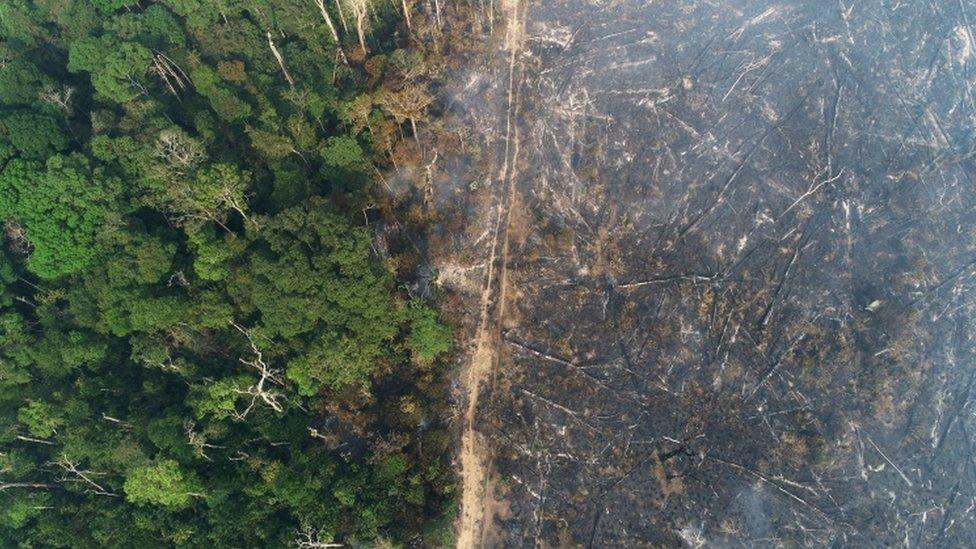Amazon deforestation: Record high destruction of trees in January
- Published
- comments

Deforestation usually slows down in January because the rainy season prevents loggers accessing the forest
The number of trees cut down in the Brazilian rainforest in January 2022 is the highest amount ever recorded in that month according to new data.
The area destroyed in January 2022 was five times larger than the same time the previous year, research from Brazil's space agency (Inpe) has shown.
Deforestation totalled 430 square kilometres (166 square miles) in January - which is almost the size of Greater Manchester or 40,000 football pitches.
Protecting the Amazon is important in helping to tackle climate change.
Deforestation is when trees are pulled down for materials, or to make space for farming or houses.
Rainforests absorb carbon dioxide and are seen as one of the best tools against climate change.
When forests are cleared or burnt, stored carbon is released into the atmosphere, mainly as carbon dioxide.
It also affects indigenous people who rely on the forest for shelter and food.
Trees and plants take in carbon dioxide and release oxygen. When they're cut down, burned or left to rot, the carbon dioxide they store is released into the air and this contributes to something called global warming.
Global warming is when greenhouse gases trap heat from the Sun, causing the Earth's surface to get hotter.
Martin meets Txai - the environment activist from Brazil
Deforestation of the Amazon has increased under Brazilian President Jair Bolsonaro, who has taken away many of the environmental protections which prevented the rainforest's destruction.
Environmentalists say people are illegally clearing land because there is no fear of punishment.
High prices for beef, soy and other commodities are also increasing the demand for cheap land.
Some forest has been illegaly cleared to provide land for cattle to meet the global demand for beef
At the COP26 global climate conference in Glasgow held last year, Brazil was one of the countries that pledged to end and reverse illegal deforestation.
Soon after these commitments Inpe released data showing deforestation of the Brazilian rainforest was at its highest for 15 years.
The Brazilian government argues that making comparisons using single months does not provide the best picture.
It says from August 2021 to January 2022 deforestation fell slightly compared to the same period the previous year.
- Published1 November 2021
- Published12 November 2020
- Published20 January 2020
